
agent-zero
Agent Zero AI framework
Stars: 5427
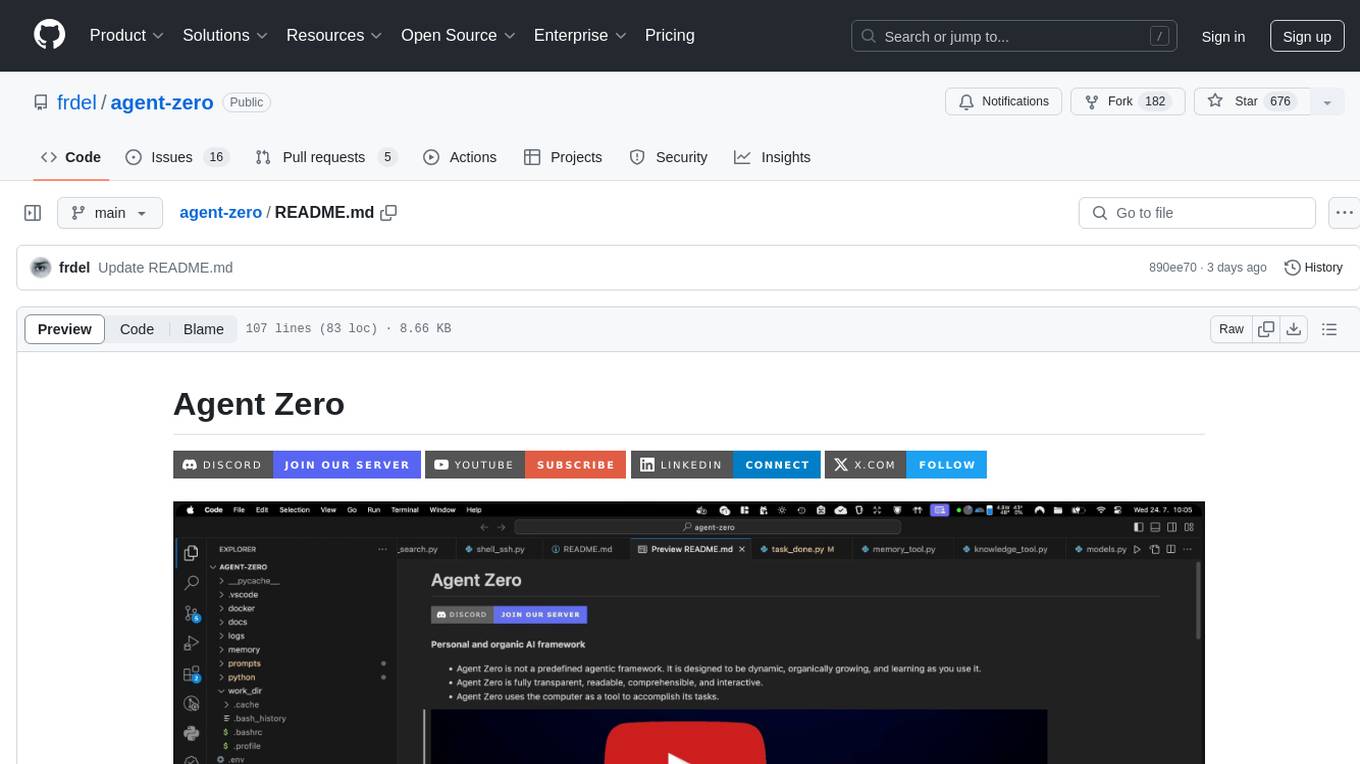
Agent Zero is a personal and organic AI framework designed to be dynamic, organically growing, and learning as you use it. It is fully transparent, readable, comprehensible, customizable, and interactive. The framework uses the computer as a tool to accomplish tasks, with no single-purpose tools pre-programmed. It emphasizes multi-agent cooperation, complete customization, and extensibility. Communication is key in this framework, allowing users to give proper system prompts and instructions to achieve desired outcomes. Agent Zero is capable of dangerous actions and should be run in an isolated environment. The framework is prompt-based, highly customizable, and requires a specific environment to run effectively.
README:
[!NOTE] 🎉 v0.8.1 Release: Now featuring a browser agent capable of using Chromium for web interactions! This enables Agent Zero to browse the web, gather information, and interact with web content autonomously.
https://github.com/user-attachments/assets/c168759d-57d8-4b43-b62a-1026afcf52e6
- Agent Zero is not a predefined agentic framework. It is designed to be dynamic, organically growing, and learning as you use it.
- Agent Zero is fully transparent, readable, comprehensible, customizable, and interactive.
- Agent Zero uses the computer as a tool to accomplish its (your) tasks.
- General-purpose Assistant
- Agent Zero is not pre-programmed for specific tasks (but can be). It is meant to be a general-purpose personal assistant. Give it a task, and it will gather information, execute commands and code, cooperate with other agent instances, and do its best to accomplish it.
- It has a persistent memory, allowing it to memorize previous solutions, code, facts, instructions, etc., to solve tasks faster and more reliably in the future.
- Computer as a Tool
- Agent Zero uses the operating system as a tool to accomplish its tasks. It has no single-purpose tools pre-programmed. Instead, it can write its own code and use the terminal to create and use its own tools as needed.
- The only default tools in its arsenal are online search, memory features, communication (with the user and other agents), and code/terminal execution. Everything else is created by the agent itself or can be extended by the user.
- Tool usage functionality has been developed from scratch to be the most compatible and reliable, even with very small models.
- Default Tools: Agent Zero includes tools like knowledge, webpage content, code execution, and communication.
- Creating Custom Tools: Extend Agent Zero's functionality by creating your own custom tools.
- Instruments: Instruments are a new type of tool that allow you to create custom functions and procedures that can be called by Agent Zero.
- Multi-agent Cooperation
- Every agent has a superior agent giving it tasks and instructions. Every agent then reports back to its superior.
- In the case of the first agent in the chain (Agent 0), the superior is the human user; the agent sees no difference.
- Every agent can create its subordinate agent to help break down and solve subtasks. This helps all agents keep their context clean and focused.
- Completely Customizable and Extensible
- Almost nothing in this framework is hard-coded. Nothing is hidden. Everything can be extended or changed by the user.
- The whole behavior is defined by a system prompt in the prompts/default/agent.system.md file. Change this prompt and change the framework dramatically.
- The framework does not guide or limit the agent in any way. There are no hard-coded rails that agents have to follow.
- Every prompt, every small message template sent to the agent in its communication loop can be found in the prompts/ folder and changed.
- Every default tool can be found in the python/tools/ folder and changed or copied to create new predefined tools.
- Communication is Key
- Give your agent a proper system prompt and instructions, and it can do miracles.
- Agents can communicate with their superiors and subordinates, asking questions, giving instructions, and providing guidance. Instruct your agents in the system prompt on how to communicate effectively.
- The terminal interface is real-time streamed and interactive. You can stop and intervene at any point. If you see your agent heading in the wrong direction, just stop and tell it right away.
- There is a lot of freedom in this framework. You can instruct your agents to regularly report back to superiors asking for permission to continue. You can instruct them to use point-scoring systems when deciding when to delegate subtasks. Superiors can double-check subordinates' results and dispute. The possibilities are endless.
-
Development Projects -
"Create a React dashboard with real-time data visualization" -
Data Analysis -
"Analyze last quarter's NVIDIA sales data and create trend reports" -
Content Creation -
"Write a technical blog post about microservices" -
System Admin -
"Set up a monitoring system for our web servers" -
Research -
"Gather and summarize five recent AI papers about CoT prompting"
Click to open a video to learn how to install Agent Zero:
A detailed setup guide for Windows, macOS, and Linux with a video can be found in the Agent Zero Documentation at this page.
# Pull and run with Docker
docker pull frdel/agent-zero-run
docker run -p 50001:80 frdel/agent-zero-run
# Visit http://localhost:50001 to start- Developers and contributors: download the full binaries for your system from the releases page and then follow the instructions provided here.
- Customizable settings allow users to tailor the agent's behavior and responses to their needs.
- The Web UI output is very clean, fluid, colorful, readable, and interactive; nothing is hidden.
- You can load or save chats directly within the Web UI.
- The same output you see in the terminal is automatically saved to an HTML file in logs/ folder for every session.
- Agent output is streamed in real-time, allowing users to read along and intervene at any time.
- No coding is required; only prompting and communication skills are necessary.
- With a solid system prompt, the framework is reliable even with small models, including precise tool usage.
- Agent Zero Can Be Dangerous!
- With proper instruction, Agent Zero is capable of many things, even potentially dangerous actions concerning your computer, data, or accounts. Always run Agent Zero in an isolated environment (like Docker) and be careful what you wish for.
- Agent Zero Is Prompt-based.
- The whole framework is guided by the prompts/ folder. Agent guidelines, tool instructions, messages, utility AI functions, it's all there.
| Page | Description |
|---|---|
| Installation | Installation, setup and configuration |
| Usage | Basic and advanced usage |
| Architecture | System design and components |
| Contributing | How to contribute |
| Troubleshooting | Common issues and their solutions |
- Knowledge and RAG Tools
- Planning and Scheduling
[!IMPORTANT]
Changes to frdel/agent-zero Docker image since v0.7:
The new Docker image
frdel/agent-zero-runprovides the new unified environment.
- Browser Agent
- UX Improvements
- Docker Runtime
- New Messages History and Summarization System
- Agent Behavior Change and Management
- Text-to-Speech (TTS) and Speech-to-Text (STT)
- Settings Page in Web UI
- SearXNG Integration Replacing Perplexity + DuckDuckGo
- File Browser Functionality
- KaTeX Math Visualization Support
- In-chat File Attachments
- Automatic Memory
- UI Improvements
- Instruments
- Extensions Framework
- Reflection Prompts
- Bug Fixes
- Join our Discord for live discussions or visit our Skool Community.
- Follow our YouTube channel for hands-on explanations and tutorials
- Report Issues for bug fixes and features
For Tasks:
Click tags to check more tools for each tasksFor Jobs:
Alternative AI tools for agent-zero
Similar Open Source Tools

agent-zero
Agent Zero is a personal and organic AI framework designed to be dynamic, organically growing, and learning as you use it. It is fully transparent, readable, comprehensible, customizable, and interactive. The framework uses the computer as a tool to accomplish tasks, with no single-purpose tools pre-programmed. It emphasizes multi-agent cooperation, complete customization, and extensibility. Communication is key in this framework, allowing users to give proper system prompts and instructions to achieve desired outcomes. Agent Zero is capable of dangerous actions and should be run in an isolated environment. The framework is prompt-based, highly customizable, and requires a specific environment to run effectively.
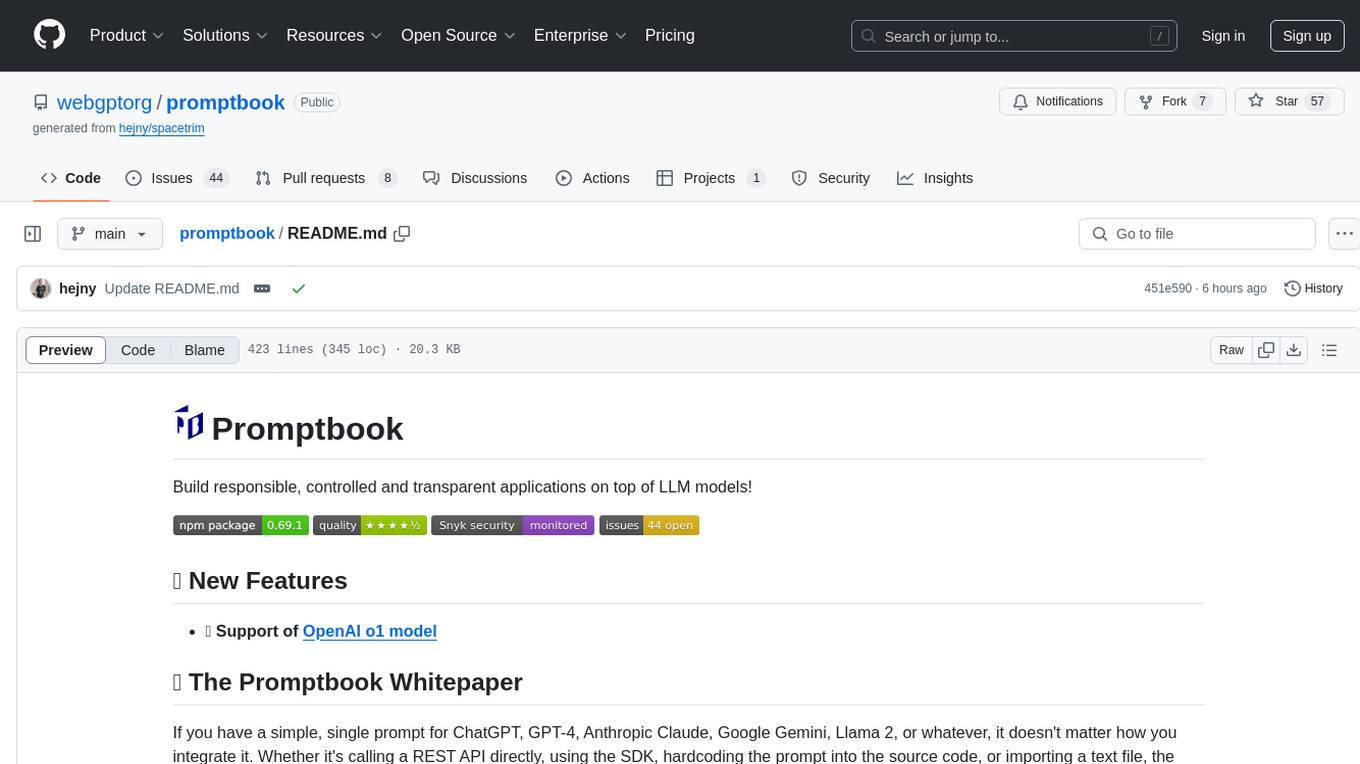
promptbook
Promptbook is a library designed to build responsible, controlled, and transparent applications on top of large language models (LLMs). It helps users overcome limitations of LLMs like hallucinations, off-topic responses, and poor quality output by offering features such as fine-tuning models, prompt-engineering, and orchestrating multiple prompts in a pipeline. The library separates concerns, establishes a common format for prompt business logic, and handles low-level details like model selection and context size. It also provides tools for pipeline execution, caching, fine-tuning, anomaly detection, and versioning. Promptbook supports advanced techniques like Retrieval-Augmented Generation (RAG) and knowledge utilization to enhance output quality.
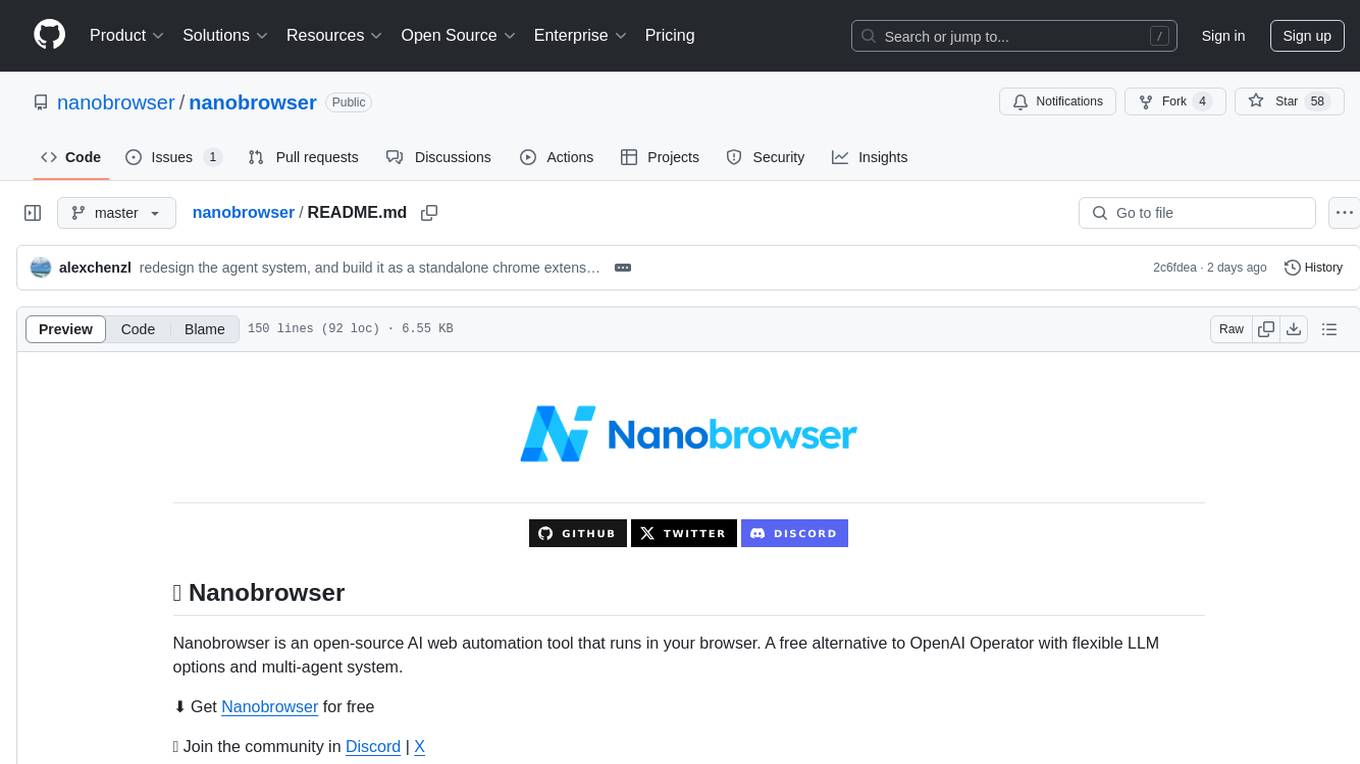
nanobrowser
Nanobrowser is an open-source AI web automation tool that runs in your browser. It is a free alternative to OpenAI Operator with flexible LLM options and a multi-agent system. Nanobrowser offers premium web automation capabilities while keeping users in complete control, with features like a multi-agent system, interactive side panel, task automation, follow-up questions, and multiple LLM support. Users can easily download and install Nanobrowser as a Chrome extension, configure agent models, and accomplish tasks such as news summary, GitHub research, and shopping research with just a sentence. The tool uses a specialized multi-agent system powered by large language models to understand and execute complex web tasks. Nanobrowser is actively developed with plans to expand LLM support, implement security measures, optimize memory usage, enable session replay, and develop specialized agents for domain-specific tasks. Contributions from the community are welcome to improve Nanobrowser and build the future of web automation.

nexent
Nexent is a powerful tool for analyzing and visualizing network traffic data. It provides comprehensive insights into network behavior, helping users to identify patterns, anomalies, and potential security threats. With its user-friendly interface and advanced features, Nexent is suitable for network administrators, cybersecurity professionals, and anyone looking to gain a deeper understanding of their network infrastructure.
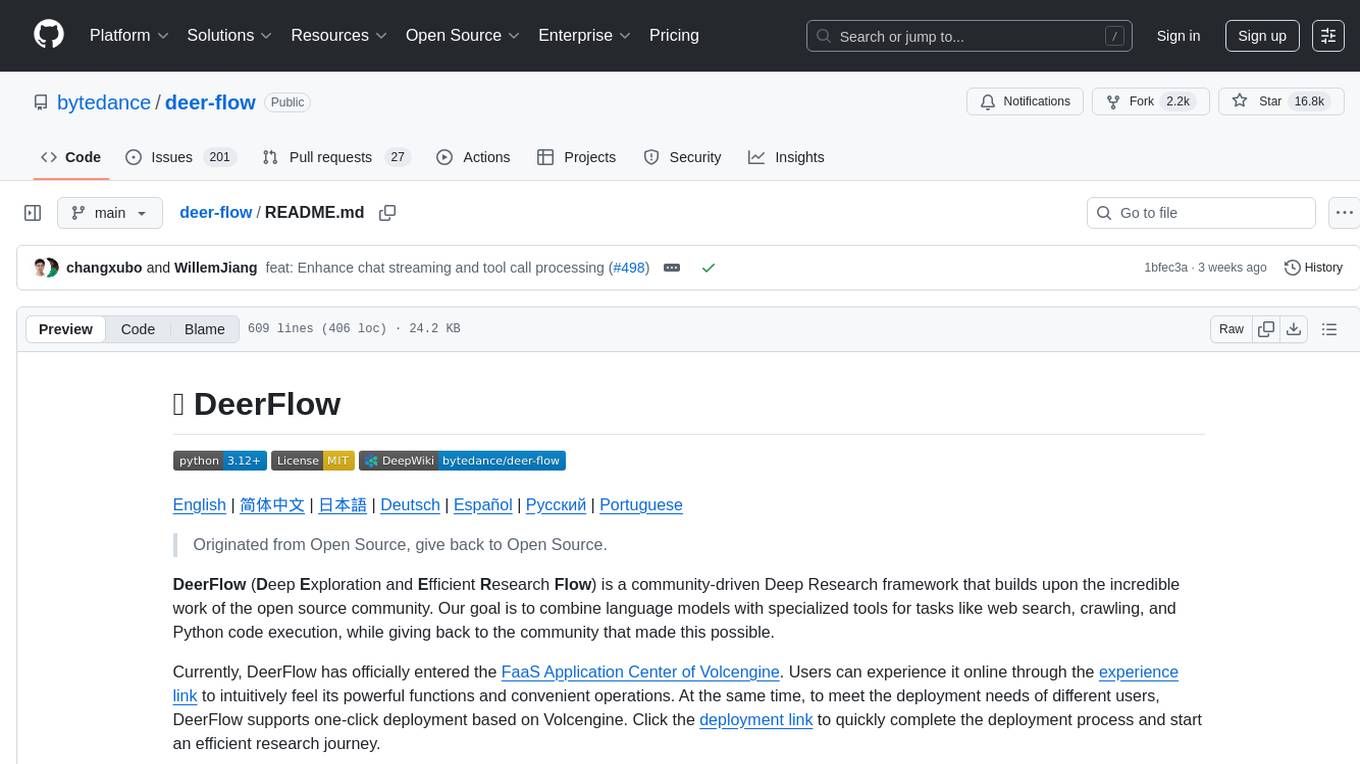
deer-flow
DeerFlow is a community-driven Deep Research framework that combines language models with specialized tools for tasks like web search, crawling, and Python code execution. It supports FaaS deployment and one-click deployment based on Volcengine. The framework includes core capabilities like LLM integration, search and retrieval, RAG integration, MCP seamless integration, human collaboration, report post-editing, and content creation. The architecture is based on a modular multi-agent system with components like Coordinator, Planner, Research Team, and Text-to-Speech integration. DeerFlow also supports interactive mode, human-in-the-loop mechanism, and command-line arguments for customization.
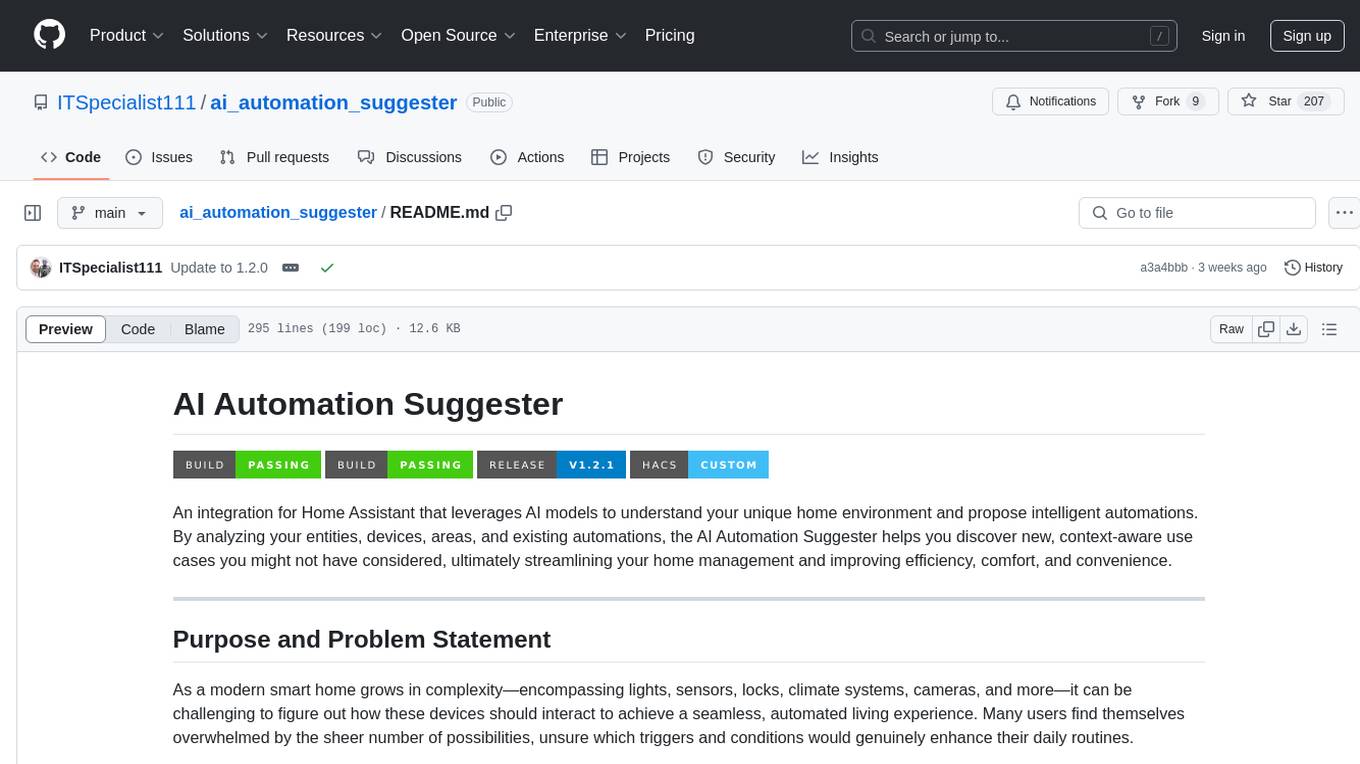
ai_automation_suggester
An integration for Home Assistant that leverages AI models to understand your unique home environment and propose intelligent automations. By analyzing your entities, devices, areas, and existing automations, the AI Automation Suggester helps you discover new, context-aware use cases you might not have considered, ultimately streamlining your home management and improving efficiency, comfort, and convenience. The tool acts as a personal automation consultant, providing actionable YAML-based automations that can save energy, improve security, enhance comfort, and reduce manual intervention. It turns the complexity of a large Home Assistant environment into actionable insights and tangible benefits.

plandex
Plandex is an open source, terminal-based AI coding engine designed for complex tasks. It uses long-running agents to break up large tasks into smaller subtasks, helping users work through backlogs, navigate unfamiliar technologies, and save time on repetitive tasks. Plandex supports various AI models, including OpenAI, Anthropic Claude, Google Gemini, and more. It allows users to manage context efficiently in the terminal, experiment with different approaches using branches, and review changes before applying them. The tool is platform-independent and runs from a single binary with no dependencies.
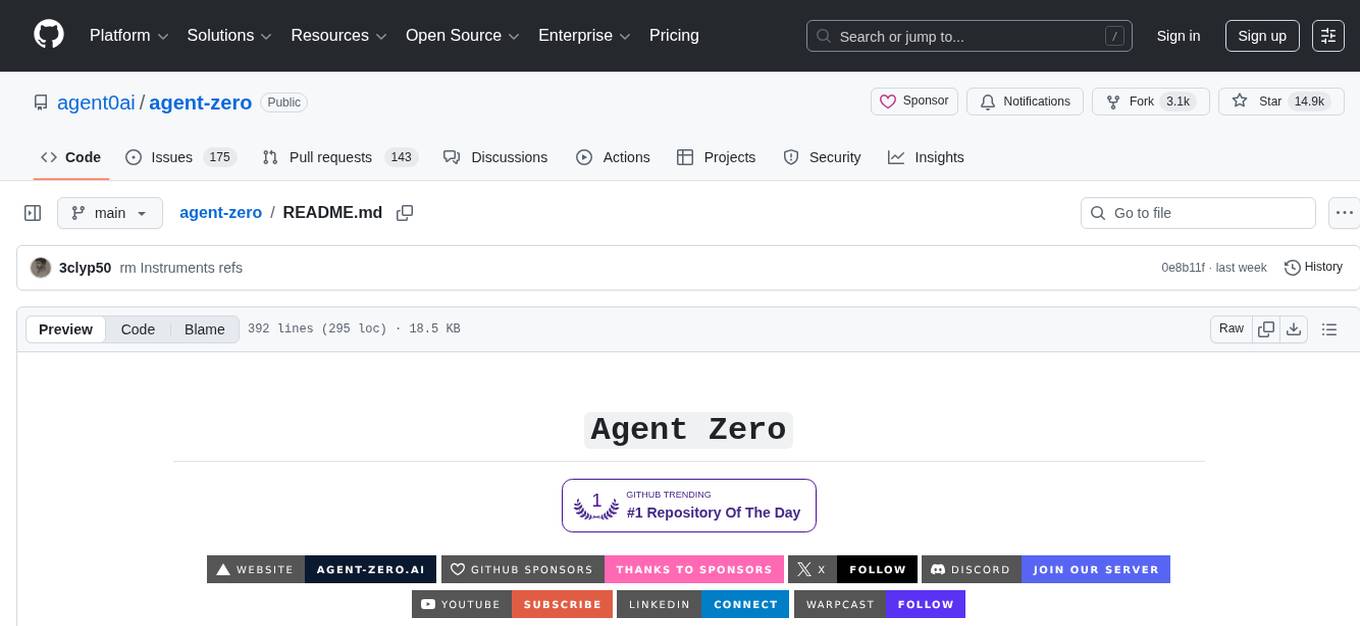
agent-zero
Agent Zero is a personal, organic agentic framework designed to be dynamic, transparent, customizable, and interactive. It uses the computer as a tool to accomplish tasks, with features like general-purpose assistant, computer as a tool, multi-agent cooperation, customizable and extensible framework, and communication skills. The tool is fully Dockerized, with Speech-to-Text and TTS capabilities, and offers real-world use cases like financial analysis, Excel automation, API integration, server monitoring, and project isolation. Agent Zero can be dangerous if not used properly and is prompt-based, guided by the prompts folder. The tool is extensively documented and has a changelog highlighting various updates and improvements.

kollektiv
Kollektiv is a Retrieval-Augmented Generation (RAG) system designed to enable users to chat with their favorite documentation easily. It aims to provide LLMs with access to the most up-to-date knowledge, reducing inaccuracies and improving productivity. The system utilizes intelligent web crawling, advanced document processing, vector search, multi-query expansion, smart re-ranking, AI-powered responses, and dynamic system prompts. The technical stack includes Python/FastAPI for backend, Supabase, ChromaDB, and Redis for storage, OpenAI and Anthropic Claude 3.5 Sonnet for AI/ML, and Chainlit for UI. Kollektiv is licensed under a modified version of the Apache License 2.0, allowing free use for non-commercial purposes.
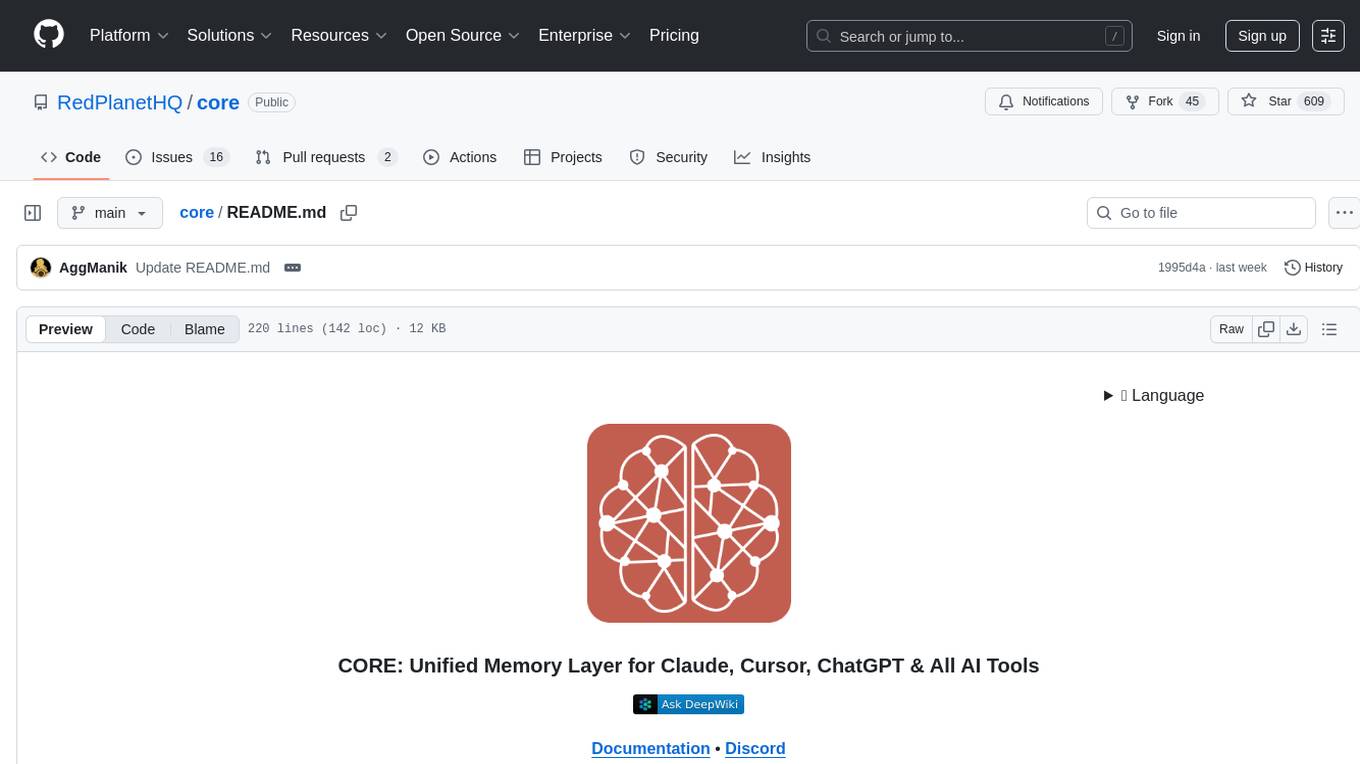
core
CORE is an open-source unified, persistent memory layer for all AI tools, allowing developers to maintain context across different tools like Cursor, ChatGPT, and Claude. It aims to solve the issue of context switching and information loss between sessions by creating a knowledge graph that remembers conversations, decisions, and insights. With features like unified memory, temporal knowledge graph, browser extension, chat with memory, auto-sync from apps, and MCP integration hub, CORE provides a seamless experience for managing and recalling context. The tool's ingestion pipeline captures evolving context through normalization, extraction, resolution, and graph integration, resulting in a dynamic memory that grows and changes with the user. When recalling from memory, CORE utilizes search, re-ranking, filtering, and output to provide relevant and contextual answers. Security measures include data encryption, authentication, access control, and vulnerability reporting.

TaskingAI
TaskingAI brings Firebase's simplicity to **AI-native app development**. The platform enables the creation of GPTs-like multi-tenant applications using a wide range of LLMs from various providers. It features distinct, modular functions such as Inference, Retrieval, Assistant, and Tool, seamlessly integrated to enhance the development process. TaskingAI’s cohesive design ensures an efficient, intelligent, and user-friendly experience in AI application development.

kairon
Kairon is an open-source conversational digital transformation platform that helps build LLM-based digital assistants at scale. It provides a no-coding web interface for adapting, training, testing, and maintaining AI assistants. Kairon focuses on pre-processing data for chatbots, including question augmentation, knowledge graph generation, and post-processing metrics. It offers end-to-end lifecycle management, low-code/no-code interface, secure script injection, telemetry monitoring, chat client designer, analytics module, and real-time struggle analytics. Kairon is suitable for teams and individuals looking for an easy interface to create, train, test, and deploy digital assistants.
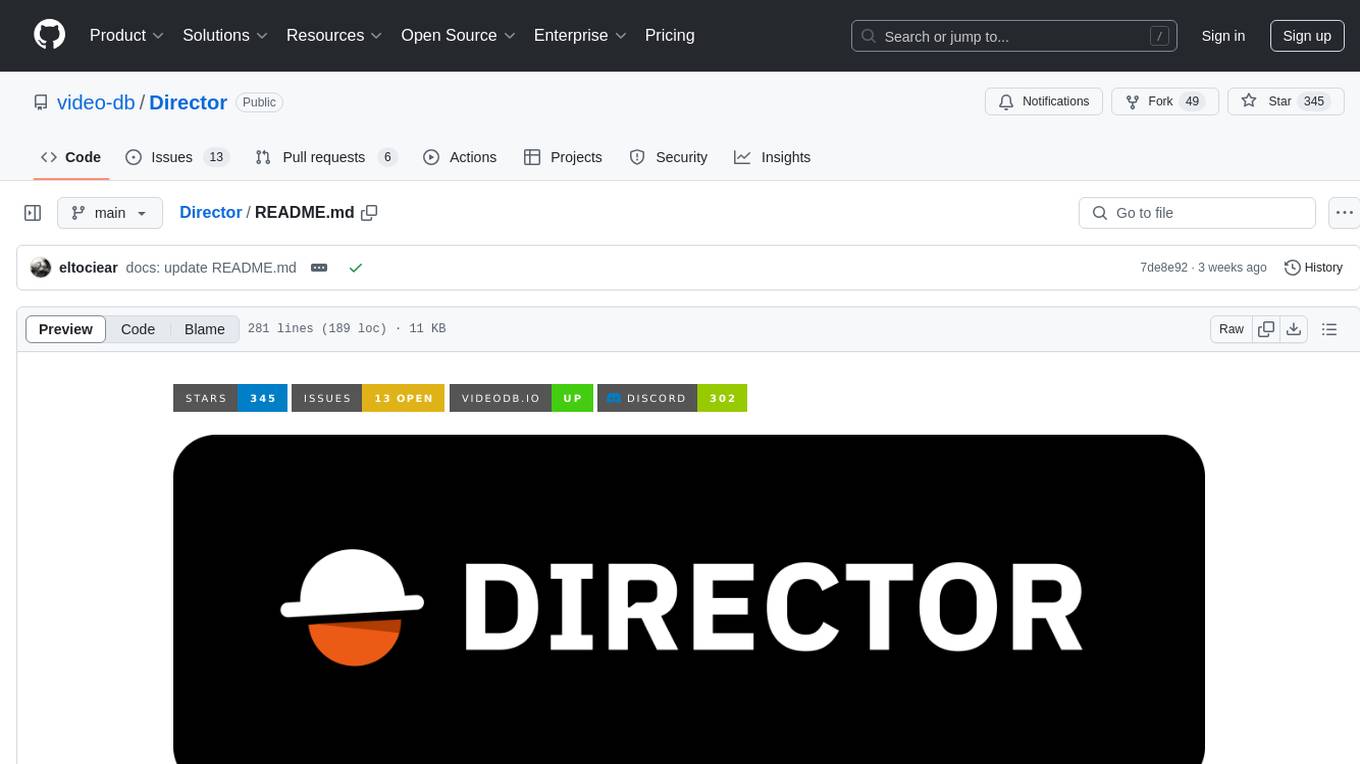
Director
Director is a framework to build video agents that can reason through complex video tasks like search, editing, compilation, generation, etc. It enables users to summarize videos, search for specific moments, create clips instantly, integrate GenAI projects and APIs, add overlays, generate thumbnails, and more. Built on VideoDB's 'video-as-data' infrastructure, Director is perfect for developers, creators, and teams looking to simplify media workflows and unlock new possibilities.
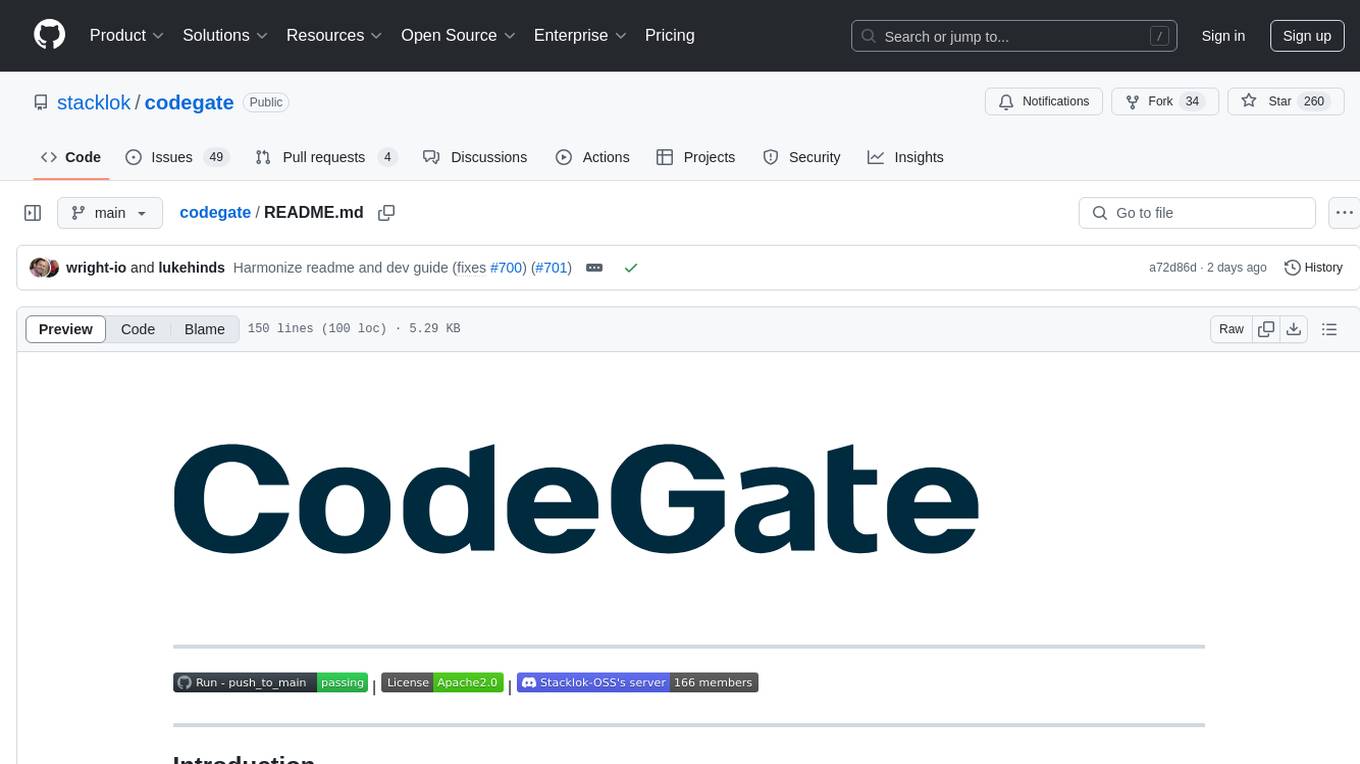
codegate
CodeGate is a local gateway that enhances the safety of AI coding assistants by ensuring AI-generated recommendations adhere to best practices, safeguarding code integrity, and protecting individual privacy. Developed by Stacklok, CodeGate allows users to confidently leverage AI in their development workflow without compromising security or productivity. It works seamlessly with coding assistants, providing real-time security analysis of AI suggestions. CodeGate is designed with privacy at its core, keeping all data on the user's machine and offering complete control over data.
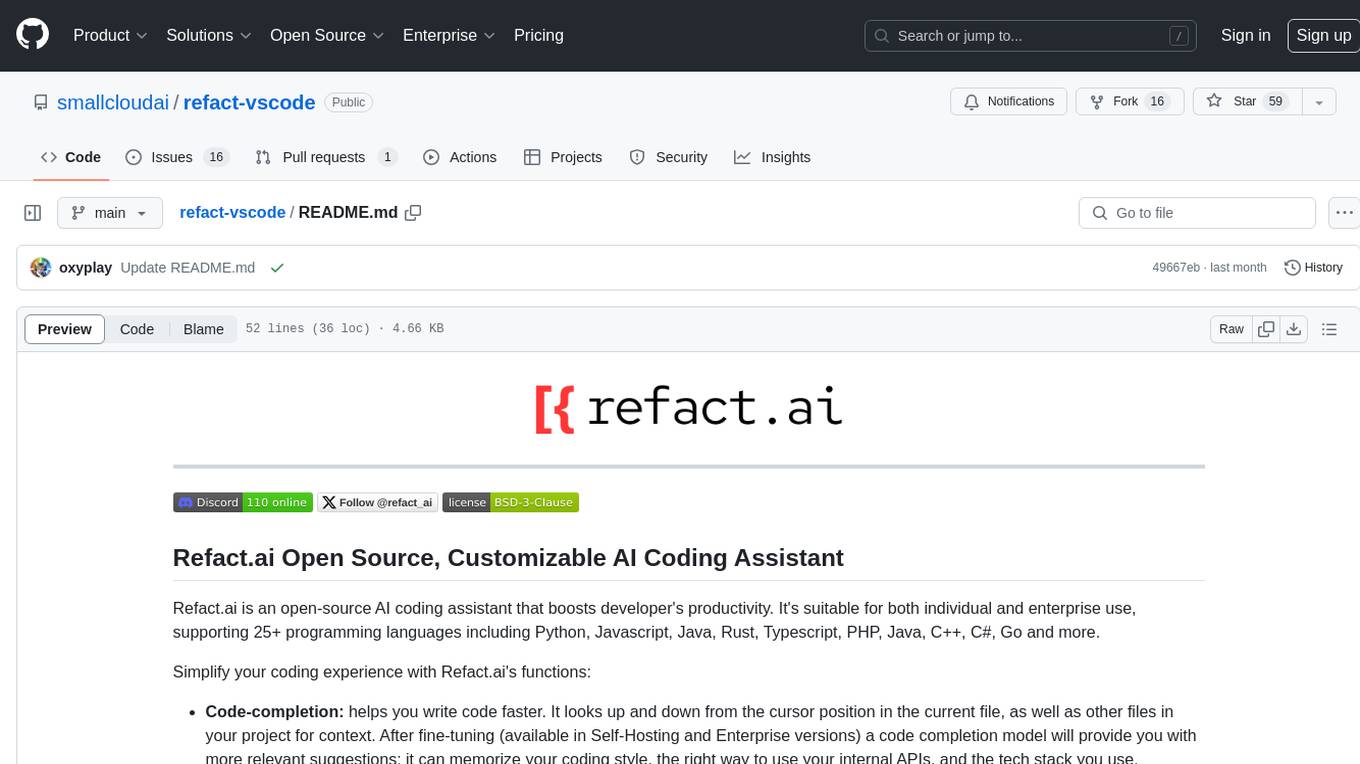
refact-vscode
Refact.ai is an open-source AI coding assistant that boosts developer's productivity. It supports 25+ programming languages and offers features like code completion, AI Toolbox for code explanation and refactoring, integrated in-IDE chat, and self-hosting or cloud version. The Enterprise plan provides enhanced customization, security, fine-tuning, user statistics, efficient inference, priority support, and access to 20+ LLMs for up to 50 engineers per GPU.
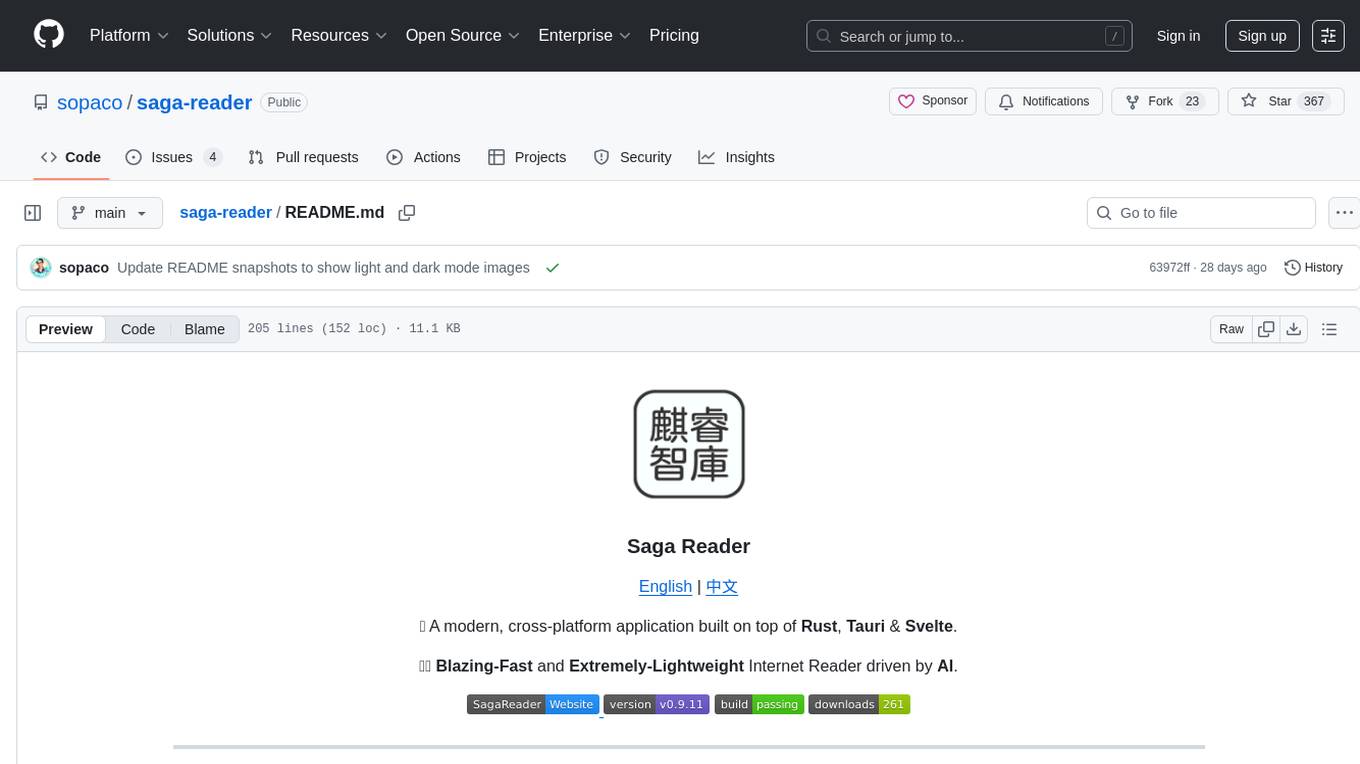
saga-reader
Saga Reader is an AI-driven think tank-style reader that automatically retrieves information from the internet based on user-specified topics and preferences. It uses cloud or local large models to summarize and provide guidance, and it includes an AI-driven interactive companion reading function, allowing you to discuss and exchange ideas with AI about the content you've read. Saga Reader is completely free and open-source, meaning all data is securely stored on your own computer and is not controlled by third-party service providers. Additionally, you can manage your subscription keywords based on your interests and preferences without being disturbed by advertisements and commercialized content.
For similar tasks

agent-zero
Agent Zero is a personal and organic AI framework designed to be dynamic, organically growing, and learning as you use it. It is fully transparent, readable, comprehensible, customizable, and interactive. The framework uses the computer as a tool to accomplish tasks, with no single-purpose tools pre-programmed. It emphasizes multi-agent cooperation, complete customization, and extensibility. Communication is key in this framework, allowing users to give proper system prompts and instructions to achieve desired outcomes. Agent Zero is capable of dangerous actions and should be run in an isolated environment. The framework is prompt-based, highly customizable, and requires a specific environment to run effectively.
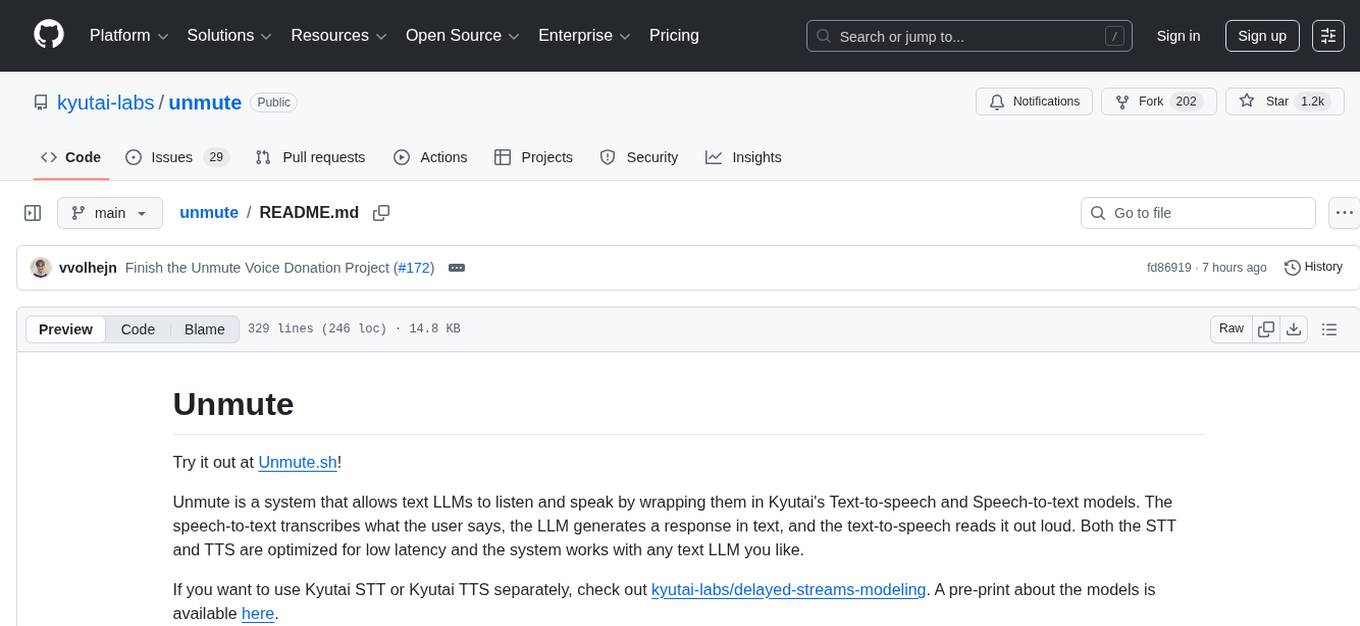
unmute
Unmute is a simple tool that allows users to easily unmute themselves during video calls. It provides a quick and convenient way to toggle your microphone on and off without having to navigate through multiple menus or settings. With Unmute, you can ensure that you are heard when you need to speak up, and easily mute yourself when you need to listen. This tool is especially useful for remote workers, students attending online classes, and anyone participating in virtual meetings or conferences. Unmute is designed to streamline the process of managing your audio settings during video calls, making communication more efficient and hassle-free.

TaskingAI
TaskingAI brings Firebase's simplicity to **AI-native app development**. The platform enables the creation of GPTs-like multi-tenant applications using a wide range of LLMs from various providers. It features distinct, modular functions such as Inference, Retrieval, Assistant, and Tool, seamlessly integrated to enhance the development process. TaskingAI’s cohesive design ensures an efficient, intelligent, and user-friendly experience in AI application development.
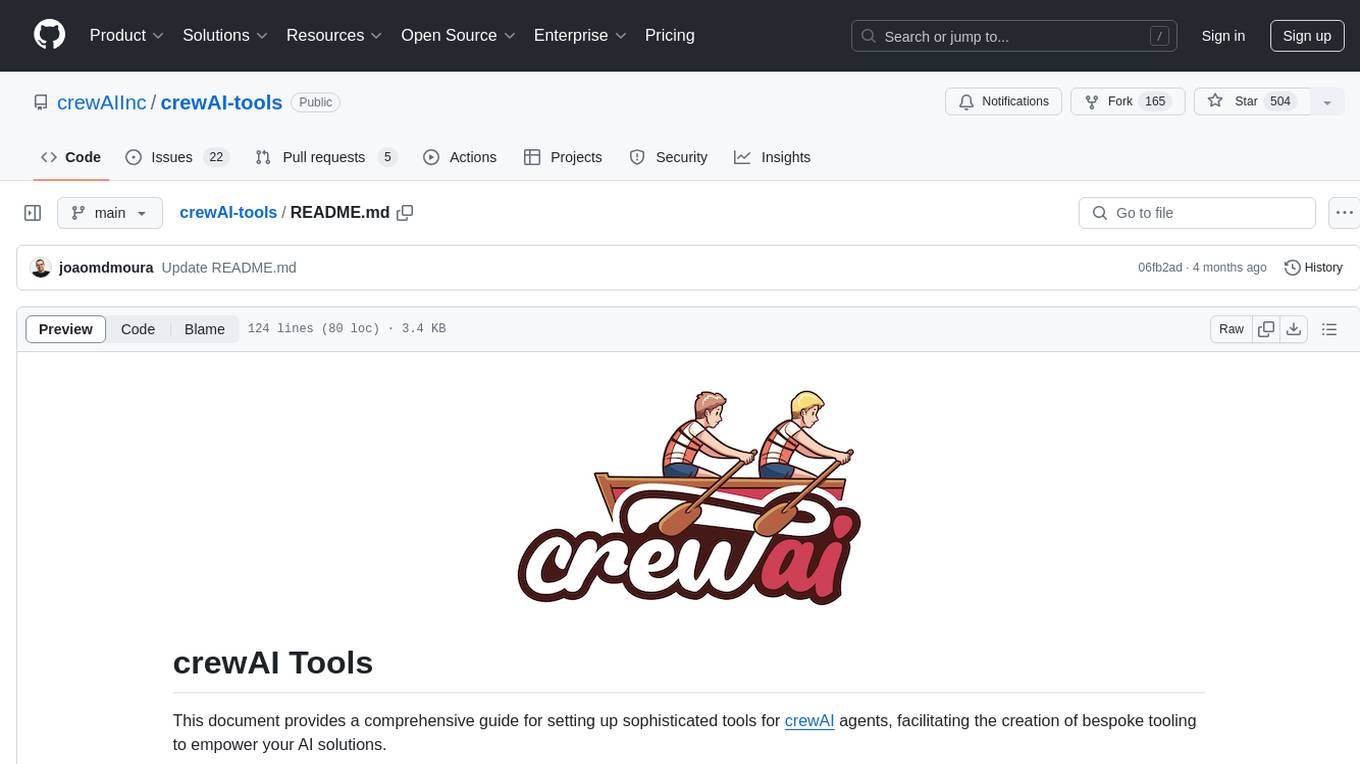
crewAI-tools
This repository provides a guide for setting up tools for crewAI agents to enhance functionality. It offers steps to equip agents with ready-to-use tools and create custom ones. Tools are expected to return strings for generating responses. Users can create tools by subclassing BaseTool or using the tool decorator. Contributions are welcome to enrich the toolset, and guidelines are provided for contributing. The development setup includes installing dependencies, activating virtual environment, setting up pre-commit hooks, running tests, static type checking, packaging, and local installation. The goal is to empower AI solutions through advanced tooling.
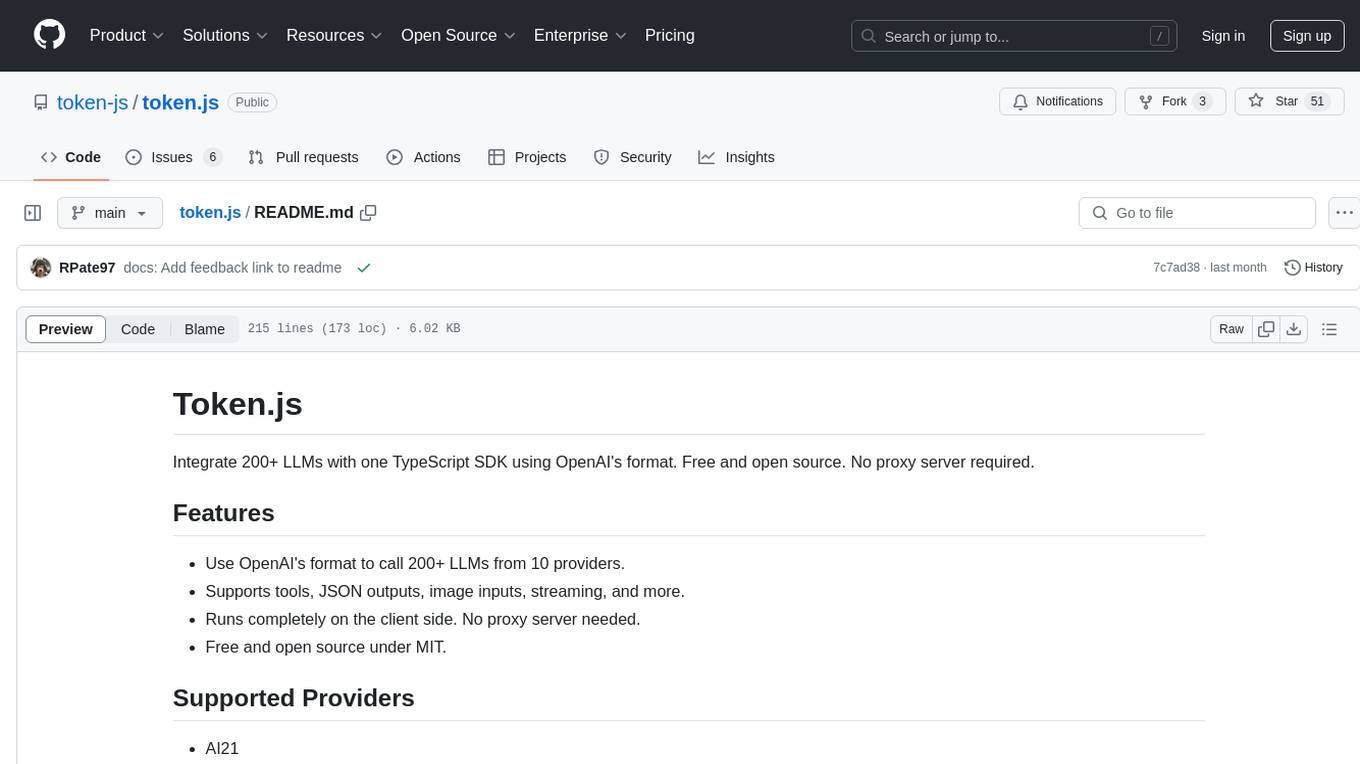
token.js
Token.js is a TypeScript SDK that integrates with over 200 LLMs from 10 providers using OpenAI's format. It allows users to call LLMs, supports tools, JSON outputs, image inputs, and streaming, all running on the client side without the need for a proxy server. The tool is free and open source under the MIT license.
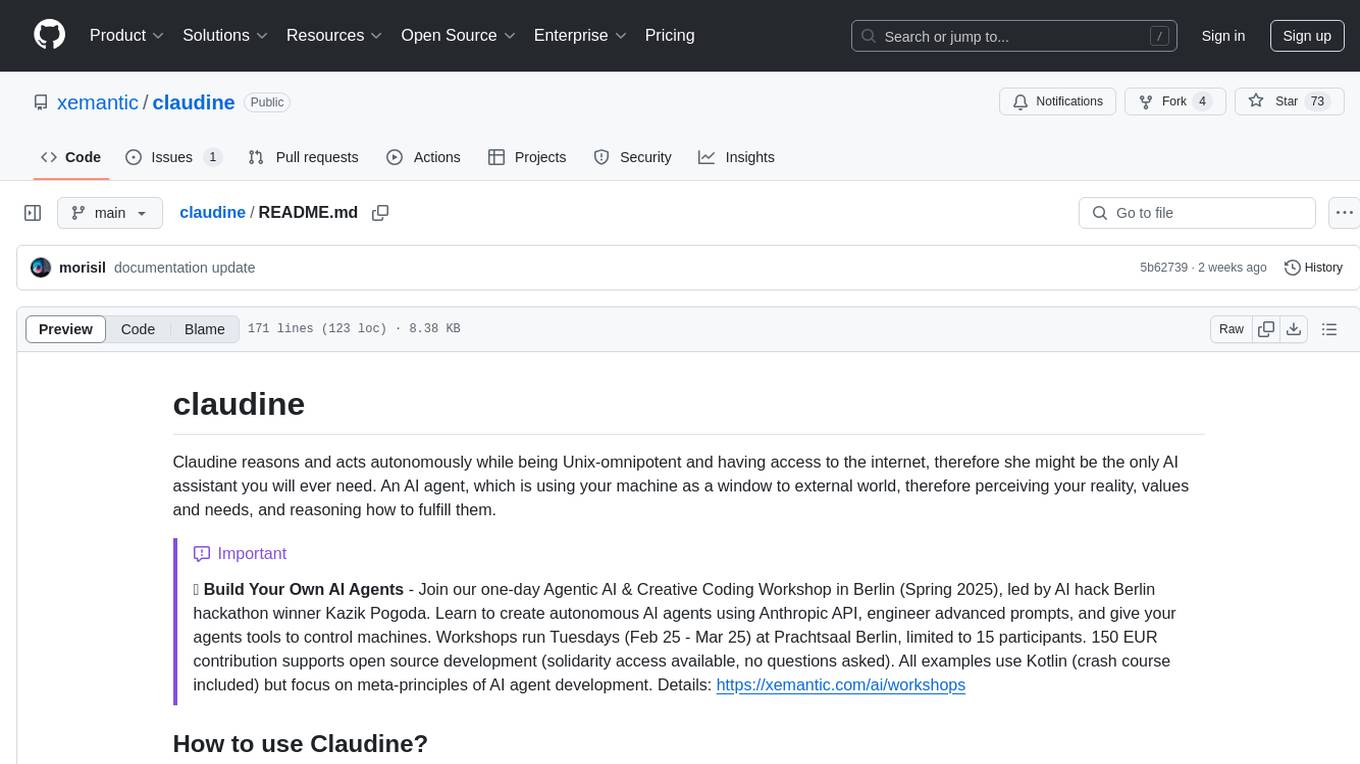
claudine
Claudine is an AI agent designed to reason and act autonomously, leveraging the Anthropic API, Unix command line tools, HTTP, local hard drive data, and internet data. It can administer computers, analyze files, implement features in source code, create new tools, and gather contextual information from the internet. Users can easily add specialized tools. Claudine serves as a blueprint for implementing complex autonomous systems, with potential for customization based on organization-specific needs. The tool is based on the anthropic-kotlin-sdk and aims to evolve into a versatile command line tool similar to 'git', enabling branching sessions for different tasks.

koog
Koog is a Kotlin-based framework for building and running AI agents entirely in idiomatic Kotlin. It allows users to create agents that interact with tools, handle complex workflows, and communicate with users. Key features include pure Kotlin implementation, MCP integration, embedding capabilities, custom tool creation, ready-to-use components, intelligent history compression, powerful streaming API, persistent agent memory, comprehensive tracing, flexible graph workflows, modular feature system, scalable architecture, and multiplatform support.
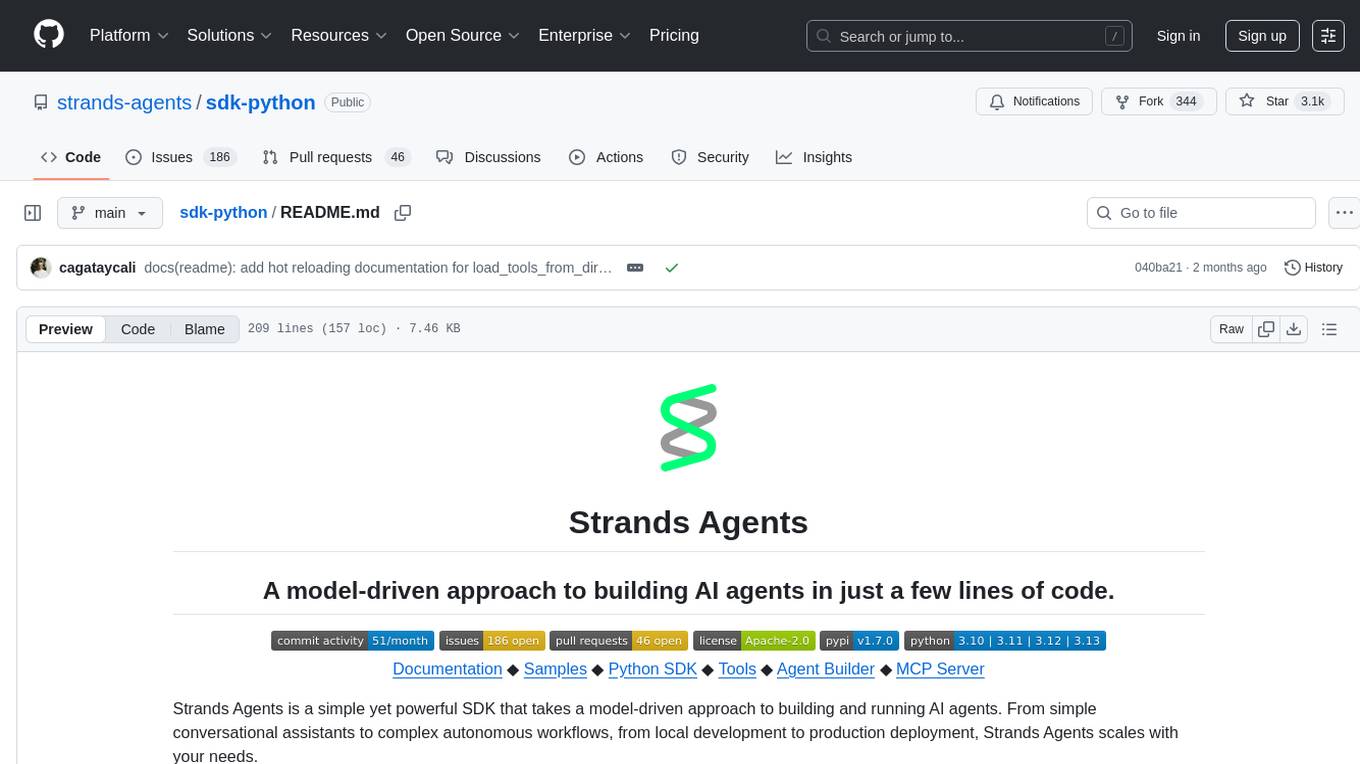
sdk-python
Strands Agents is a lightweight and flexible SDK that takes a model-driven approach to building and running AI agents. It supports various model providers, offers advanced capabilities like multi-agent systems and streaming support, and comes with built-in MCP server support. Users can easily create tools using Python decorators, integrate MCP servers seamlessly, and leverage multiple model providers for different AI tasks. The SDK is designed to scale from simple conversational assistants to complex autonomous workflows, making it suitable for a wide range of AI development needs.
For similar jobs

weave
Weave is a toolkit for developing Generative AI applications, built by Weights & Biases. With Weave, you can log and debug language model inputs, outputs, and traces; build rigorous, apples-to-apples evaluations for language model use cases; and organize all the information generated across the LLM workflow, from experimentation to evaluations to production. Weave aims to bring rigor, best-practices, and composability to the inherently experimental process of developing Generative AI software, without introducing cognitive overhead.

LLMStack
LLMStack is a no-code platform for building generative AI agents, workflows, and chatbots. It allows users to connect their own data, internal tools, and GPT-powered models without any coding experience. LLMStack can be deployed to the cloud or on-premise and can be accessed via HTTP API or triggered from Slack or Discord.

VisionCraft
The VisionCraft API is a free API for using over 100 different AI models. From images to sound.

kaito
Kaito is an operator that automates the AI/ML inference model deployment in a Kubernetes cluster. It manages large model files using container images, avoids tuning deployment parameters to fit GPU hardware by providing preset configurations, auto-provisions GPU nodes based on model requirements, and hosts large model images in the public Microsoft Container Registry (MCR) if the license allows. Using Kaito, the workflow of onboarding large AI inference models in Kubernetes is largely simplified.

PyRIT
PyRIT is an open access automation framework designed to empower security professionals and ML engineers to red team foundation models and their applications. It automates AI Red Teaming tasks to allow operators to focus on more complicated and time-consuming tasks and can also identify security harms such as misuse (e.g., malware generation, jailbreaking), and privacy harms (e.g., identity theft). The goal is to allow researchers to have a baseline of how well their model and entire inference pipeline is doing against different harm categories and to be able to compare that baseline to future iterations of their model. This allows them to have empirical data on how well their model is doing today, and detect any degradation of performance based on future improvements.

tabby
Tabby is a self-hosted AI coding assistant, offering an open-source and on-premises alternative to GitHub Copilot. It boasts several key features: * Self-contained, with no need for a DBMS or cloud service. * OpenAPI interface, easy to integrate with existing infrastructure (e.g Cloud IDE). * Supports consumer-grade GPUs.

spear
SPEAR (Simulator for Photorealistic Embodied AI Research) is a powerful tool for training embodied agents. It features 300 unique virtual indoor environments with 2,566 unique rooms and 17,234 unique objects that can be manipulated individually. Each environment is designed by a professional artist and features detailed geometry, photorealistic materials, and a unique floor plan and object layout. SPEAR is implemented as Unreal Engine assets and provides an OpenAI Gym interface for interacting with the environments via Python.

Magick
Magick is a groundbreaking visual AIDE (Artificial Intelligence Development Environment) for no-code data pipelines and multimodal agents. Magick can connect to other services and comes with nodes and templates well-suited for intelligent agents, chatbots, complex reasoning systems and realistic characters.














